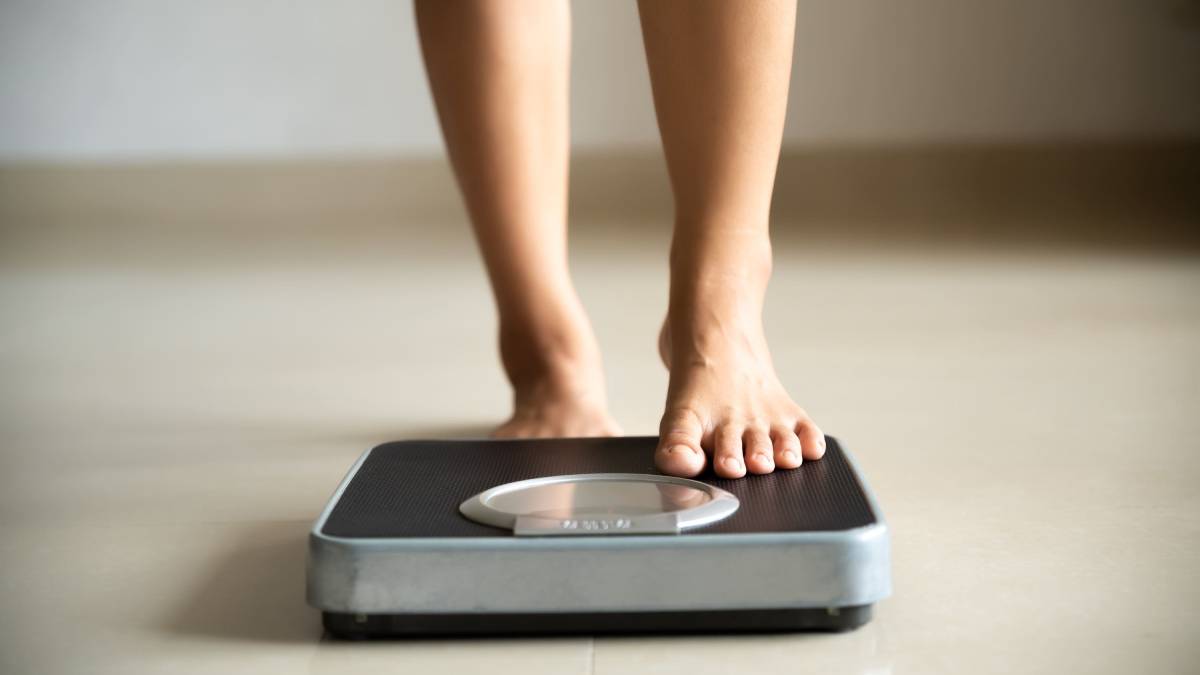Chances are, many of us would have started this year with the goal of losing weight – and every year, it seems there’s a new diet or product heralded as the best way to do it.
But all too often they don’t achieve long-lasting results – and aren’t really a sensible, healthy choice either.
“For the most part, foods should not be ‘banned’ or eliminated completely,” says GP Dr Sameer Sanghvi.

Nutritional therapist Laura Southern (londonfoodtherapy.com) adds: “January is a busy month for patients wanting my help with losing weight, but I always advise them to stay away from fad diets, juice cleanses and extreme calorie restriction, as these can just lead to disordered eating and yo-yo dieting.
“Plus, they don’t work,” she says. “It’s estimated 95 per cent of people who embark on a diet regain the weight and more between one to five years later.”
Ms Southern says there’s no one-size-fits-all approach to weight loss, adding: “When I’m supporting patients, it’s a very personalised and tailored approach that takes into account their health, metabolism, digestion and lifestyle.”
Here, the experts address some of the most common weight-loss claims.
1. Skipping meals
Ms Southern says intermittent fasting – usually a 12-hour overnight fast, with gaps between meals – may sometimes be recommended as part of a weight-loss program. But generally speaking, skipping meals is not advised.
“While for some people, this [intermittent fasting] could mean skipping a meal, I would never advise anyone to do that without support – it’s simply not suitable or necessary for many people,” says Ms Southern. “Skipping meals or eating in a restricted way can lead to binge eating, which creates unhealthy behaviours and won’t ultimately support weight loss.”
Dr Sanghvi says it’s far better to eat regular, healthy meals: “Eating regular meals helps your body get into a routine, and eating at regular intervals helps your body burn calories quicker and stops temptation to snack.”
Read: Including this nut in your diet could help you lose weight
2. Cutting carbs
While many diets advocate cutting carbs, the experts stress there are many different types of carbohydrates – and while they’re often thought of as being just white bread, pasta, rice and potatoes, carbohydrates are also found in foods such as veg, fruit, nuts and seeds.
Cut carbs? Like into smaller pieces or….
— Sam G (@ItsSamG) December 12, 2021
“Carbohydrates are a really important part of our diet,” stresses Dr Sanghvi, who says most adults need around 225–325g of carbohydrates a day.
There are three different types of carbs – starchy, fibre and sugars. Dr Sanghvi says starchy carbs (such as potatoes, bread, pasta and rice – wholegrain varieties where possible) should make up a third of our daily food intake.
“They’re a great source of energy and contain lots of nutrients we need to keep the body healthy,” he explains. “Starchy carbs often contain fibre, which is good for gut health and to keep you feeling fuller for longer.”
However, there is a part of the avoiding carbs mantra that’s worth adhering to, he suggests: “Most of us should reduce our intake of sugars, especially free sugars – these are the sugars added to chocolates, cakes and soda, but they also occur naturally in honey and juice.”
View this post on Instagram
Ms Southern adds: “Cutting out carbs is one I see from my patients again and again. Carbohydrates are nourishing and health-filled foods and they support our microbiome, hormones, mood, energy and satiety.
“If your diet is heavy in simple, refined carbs – pastries, biscuits, white bread, white pasta, sweets, etc – then cutting carbs will be supportive to weight loss and overall health. Cutting out carbs from veg, pulses and fruit isn’t something I usually recommend though. “
3. Eating ‘breakfast like a king’ and ‘dinner like a pauper’
Dr Sanghvi says whether breakfast is really the most important meal of the day is a hotly debated topic. One large US study, he notes, analysed the health of 50,000 people and found those eating breakfast were more likely to have a lower BMI.
“So, there’s something in it,” he says – but that doesn’t mean a huge greasy fry-up first thing ticks the box. It still comes down to sensible choices.
Read: Protein the key to avoiding midlife weight gain

“Having a good breakfast is a great way to set you up for the day. But don’t overdo it at breakfast, or you might eat into your calorie intake for the day, leaving yourself feeling hungry later,” says Dr Sanghvi.
However, it’s also a good idea not to have a huge meal right before going to bed. “That’s because your body doesn’t have time to digest the food properly, and also it can impact how well you sleep,” he adds.
4. Only eating low-fat foods
While low-fat foods may sometimes help reduce intake of certain high-calorie, unhealthy fats, Dr Sanghvi says it’s important to look carefully at what low-fat food you buy. Just because it’s lower in fat than its full-fat counterpart, doesn’t necessarily mean it’s actually a low-fat food – or that it’s better for you.
“For something to be labelled low-fat, reduced fat or lite/light, it has to have 30 per cent less fat than a similar product,” says Dr Sanghvi. “However, it’s really important to bear in mind that if something is already high in fat, the lower fat version might still be a high-fat food. Low-fat foods aren’t necessarily low-calorie either. So, it’s important to always check food labels closely.”
Read: The reasons behind why you’re not losing weight
Also, some foods labelled low-fat may still be loaded with sugar and sweeteners. Plus, like carbs, fats are not always ‘bad’.
“There’s no need to consume only low-fat foods when trying to lose weight. Fat plays an important role in our bodies, and it can also help make meals feel more satisfying,” says dietitian Kendra Haire.
She says healthy fat sources include nuts and nut butters, seeds, avocado, olive oil and fatty fish. “It’s more important to consider the type of fat,” Ms Haire adds, “and to keep portion sizes moderate.”
Is it your goal to lose weight this year? How are you going about it? Let us know in the comments section below.
– With PA


If you are diabetic be very careful of some diets. I am Diabetic type 2. My GP told me to stay away from any fasting type diets because of my diabetes. The 5 & 2 diet and the fast 800 diet (made popular by Dr Michael Mosely) for example are very risky for a diabetic. But they don’t seem to make this clear when they adverise them. Wonder why eh ?
it doesn’t work for everyone, but the published study in the UK*** indicated that:
1. Men who get their metabolism working BEFORE eating breakfast can control their weight relatively easily.
2. Women who eat (something) immediately on rising can control their weight relatively easily.
As man, I’ve used this technique successfully for years.
I don’t think it is as easy for women.
*** Dr Michael Moseley (SBS?)